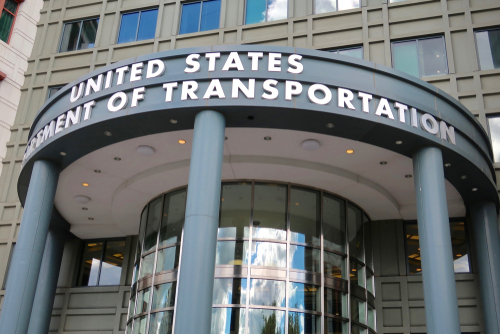
An analysis of the U.S. Department of Transportation by the U.S. General Accounting Office has found that the DOT could use its research funds more efficiently.
In a report released Monday, the GAO said the DOT’s research budget of more than $1 billion could be run more effectively and efficiently by using leading practices such as defining and monitoring progress toward long-term goals.
According to the GAO, the DOT uses a multi-step, centralized process to determine which research projects it will fund. Additionally, it found, the department’s modal administrations, which focus on specific modes of transportation like air, rail, and highways, manage most of the DOT’s research, with the Office of the Assistant Secretary for Research and Technology (OST-R) being responsible for reviewing the proposed research to ensure it is aligned with the department’s strategic plan and does not duplicate other research efforts.
However, the GAO found that OST-R does not incorporate all leading practices into its operations.
“DOT has multiple efforts to facilitate research collaboration both externally and internally, but in guidance to promote collaboration, OST-R did not incorporate all leading practices,” the report said. “Specifically, OST-R established topical-research working groups on 12 multimodal subject areas in October 2018 and issued accompanying guidance. This guidance incorporated some leading collaboration practices, such as directing working groups to identify leadership roles and relevant participants. However, the guidance did not incorporate two leading practices—defining and monitoring progress toward long-term outcomes and regularly updating and monitoring written agreements. Taking steps to ensure the working groups follow these practices could provide OST-R greater assurance that the groups coordinate their efforts effectively, better plan long-term research, and better position themselves to address future transportation challenges.”
And the agency found that the OST-R was not adequately maintaining the public database on DOT-funded research projects. Known as the Research Hub, the database is required by federal law to be complete and accurate.
The GAO found that as of July 2019, 36 percent of the records in the database were missing research partners’ contact information, which would affect the research community’s ability to properly update project details.
“Taking additional steps, such as providing instructions to the modal administrations on how to improve the completeness and accuracy of the information they give OST-R for the Research Hub, would help ensure the database is fulfilling DOT’s intended purpose that it serves as a reliable source of information on the department’s research portfolio,” the report said.
The agency recommended that the Assistant Secretary for Research take steps to ensure that topical-research working groups define and monitor their progress toward long-term outcomes and to update and monitor their written charters to reflect those outcomes. Additionally, the agency recommended the Assistant Secretary should take steps to ensure that the information in the Research Hub is complete and accurate.